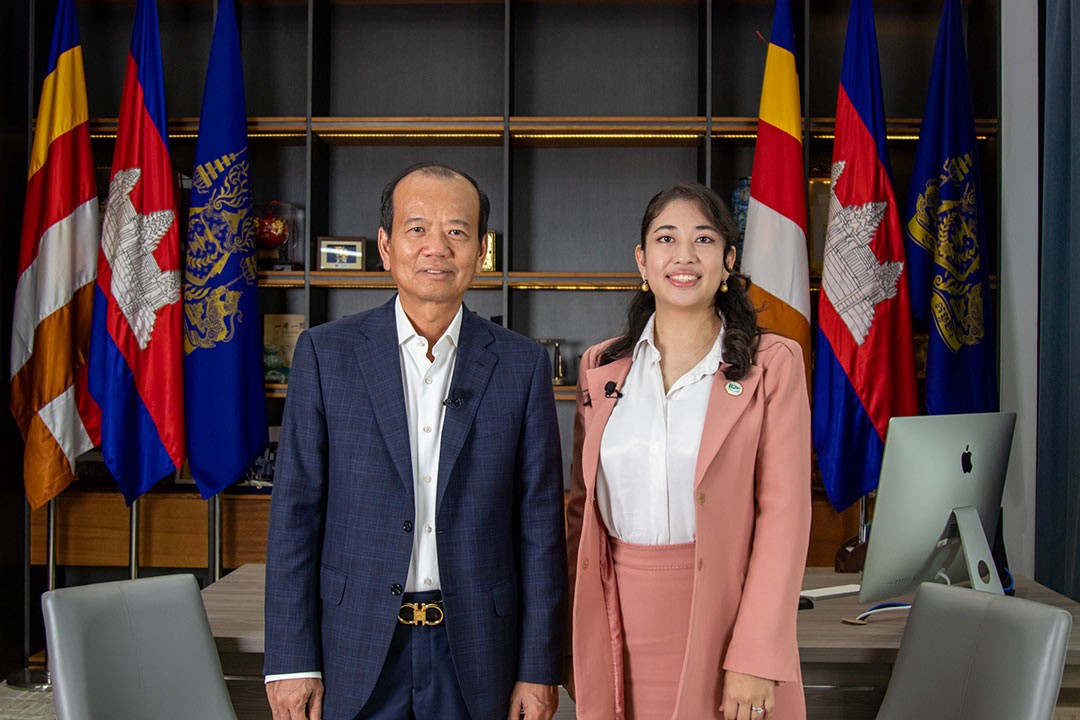
H.E. Chea Vandeth, the Cambodian Minister of Post and Telecommunications (MPTC), spoke with B2B Cambodia about the exciting and daunting challenges his ministry and the country are facing in technology, telecommunications and digitalisation.
He tells us about the plans that have been implemented to ensure the Kingdom remains competitive through digital transformation by developing workable policies, investments in infrastructure and human capital - and discusses the biggest opportunities and threats.
The Ministry of Post and Telecommunications (MPTC) manages the post, telecommunications, and ICT sectors in the Kingdom of Cambodia and is led by H.E. Chea Vandeth who has been the Minister of Post and Telecommunications since April 2020.
With the sector in the spotlight and digitalisation seen as a key function of helping Cambodia progress economically, the MPTC has a wide mandate in overseeing the transformation of the country to be competitive in this space.
Earlier in 2024, the ministry’s VERIFY.GOV.KH (the Cambodian government’s document verification platform developed by the MPTC) was awarded a gold medal at the ASEAN Digital Awards 2024 hosted in Singapore – this was the first time a Cambodian digital solutions platform won the accolade in the public sector.
Establishing The Building Blocks For Digitalisation In Cambodia
H.E. Chea Vandeth told B2B Cambodia about the transformation he has helped oversee in the sector:
I initiated several projects in the ministry. First, I made reforms, and most administrative and financial reforms have been very successful. With these reforms, our ministry improved the quality of work, human resources, and we have had the financial means to implement government projects.
“At the start we had to begin with improving the quality of mobile and internet services and we tried to construct many telecommunication towers in Phnom Penh, in satellite cities, and we also looked at internal building systems so that those inside the buildings can use mobile services and the internet as well. We are also continuing to construct towers in provincial areas,” he added.
To improve internet services, we are also working on the construction of a submarine cable from Hong Kong directly to Cambodia so that we have many routes. So far we have a submarine cable from Hong Kong through the AAE-1 project that go to the Middle East, Europe and Africa, but with one section crossing Cambodia, and we have submarine cables from Malaysia to Cambodia through Thailand, and now we are working on the direct line from Hong Kong so we can facilitate the increasing demand and internet usage in Cambodia.
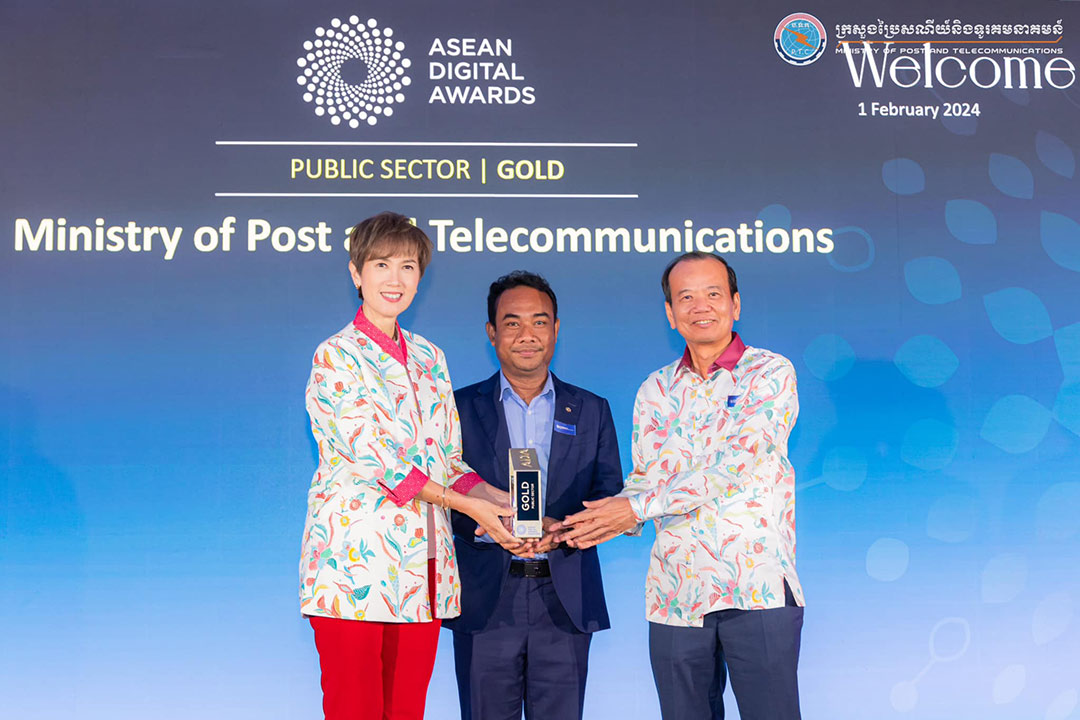
The MPTC also has to align with national policies which lay out the future integration and accessibility. The minister told us that they define three important factors in these policies.
- The government should be a digital government.
- Citizens should be digital citizens.
- Businesses should be digital businesses.
He added,
We want to transform our government to be digital and reduce as much as possible the use of paper, to be paperless.
To achieve this goal, the MPTC has connected all mobile and internet services in the ministries and helped create a digital transformation unit to speed up digital transformation efforts.
They also train staff in digital transformation to ensure officials can use digital tools for their work. The minister also noted that they build their own data centres and help relevant ministries develop a master plan for a multi-year period so they have a clear roadmap for their transformation. This includes awareness of cybersecurity and having teams and systems in place to prevent any cyber attack.
Among the systems the MPTC is developing are verification tools to identify fake documents to help build trust and ensure the authenticity of official documents, as well as developing a bill which H.E. Chea Vandeth believes will fortify local and regional trust in Cambodia’s digital transformation at a government level.
Raising Awareness Of Digital Transformation In Cambodia – Digital Inclusion
“The ministry has raised awareness to the public, especially to students who understand that digital technology is important for them in the future. We are working with the Ministry of Education and Reform Committee to build 42 digital labs so that primary school students can have access to digital tools. We want to start from grade four to grade six, and we'll expand to grade seven to grade nine,” said H.E. Chea Vandeth.
The Minister acknowledged that having the public and students understand the importance of digital technology is key.
At high schools, we build community tech centres. This is very important, as we have over 500 high schools and we plan to build, within five years, community tech centres at all high schools… It is very important that these digital citizens use digital tools for their daily life and their work.
At the university level, the MPTC has developed a digital roadmap with the ambition to produce over 100 digital experts with bachelor degrees, and over 30,000 people with Masters and PhDs who either work in research or assume the role of university lecturer/professor within the next 10 years.
The ministry is also rolling out a digital university management system which has three core functions – a learning management system, a student management system, and an e-library – and also provides 100 per cent scholarships to students who do exceptionally well on their national exams, and financial aid to the most disadvantaged students from the provinces.
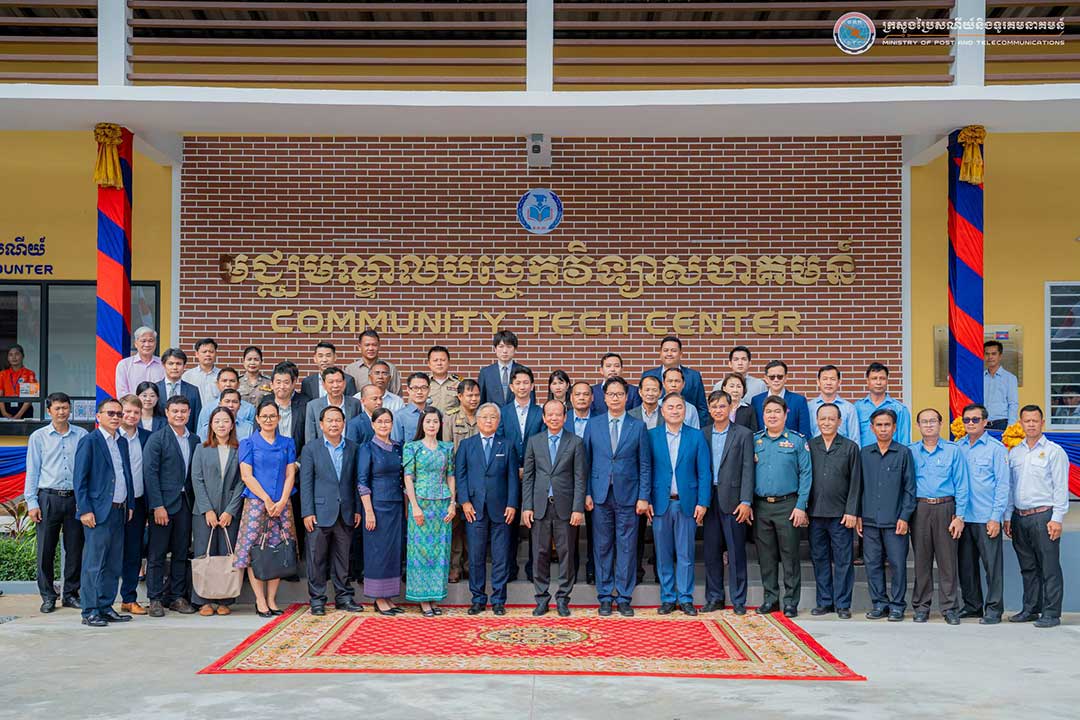
Investing In Cambodia’s Telecommunications Infrastructure
In recent years, the MPTC has announced plans to add an additional 1,000 new antennas to help with the internet, introduced free Wi-Fi to the beaches in Sihanoukville, and is continuing to work towards developing Cambodia’s infrastructure capacity.
While there have been several private and public sector assurances of the networks being upgraded, 5G has still yet to be rolled out while other countries in the region have well moved on to 5G and 6G, so a question remains on what Cambodia’s main goals are in this regard.
Responding to this, H.E. Chea Vandeth said, “We are trying to build the infrastructure, bringing it in from outside to Cambodia, both through submarine cables and fibre optic cables from Vietnam and Thailand. And internally, we are looking to put in place a master plan to ensure there is fibre optic connection everywhere once deployed.”
We have a plan to link every district to every commune, from communal hall to health centre, to school, to police station, and to crowded areas. We are now starting, in some provinces, to build mobile towers…
He also touched on the problems faced by the ministry in finding the right space to build the towers, which is easier to do in the provinces than in the city.
“People who lease their land to us (in the provinces) are happy because they receive a good income, and they do not have any problems, but in the city we face a lot of difficulty,” said H.E. Chea Vandeth. “If we could construct 1000 towers in the city, then the service would be much improved, because now we have only 400 towers that are already constructed and put in operation. After we do this, we also need to take down the boosters that are disrupting mobile service provision.”
For 5G, we are now developing a roadmap and feasibility study on a business plan. Cambodia is still looking at the 5G operations in different countries, because each country has their own advantages, but also challenges. We want to try to understand from them so that we can have a better launch of 5G.
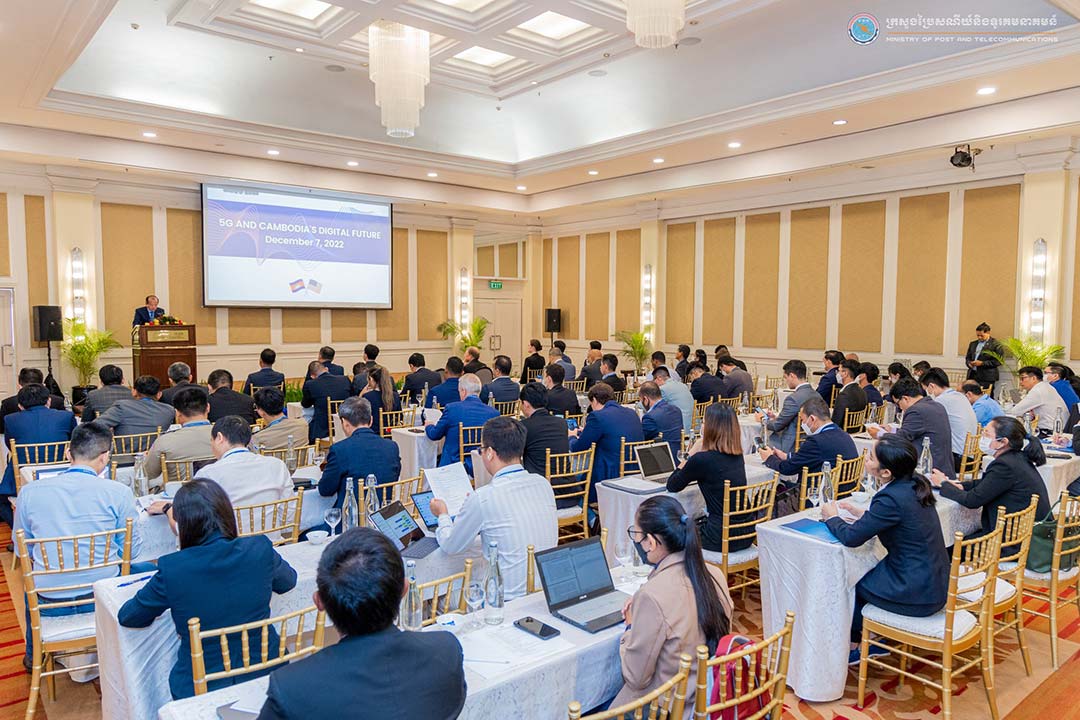
Addressing Cyber Threats In Cambodia
Cybersecurity has been a trending topic in the digital sphere and the minister addressed how they are helping ministries to combat cybersecurity threats.
The challenge is that our network infrastructure network is not enough to be protected, and what’s more critical is in finance, in the business sector, as well as in the government. So in tackling this issue, we have developed a security digital security council and we are working with Japanese government… to work on a concrete action plan and measure to tackle the current situation.
He added that the Ministry of Interior is also drafting a Cybercrime Law, while the MPTC is drafting a personal data protection law, under which there will be many sub decrees and Prakas to take action.
“We are also designing a cybersecurity architecture for our ministry… and in the future, we can also deploy this across all of the ministries in the government, so that it becomes a kind of cybersecurity network for the government,” he further shared.
Furthermore, the Cambodian government has created a digital security committee led by Prime Minister Hun Manet, within which exists a general secretariat that is led by the MPTC.
The minister also added that the MPTC continues to work with international partners and governments such as the South Korean government, the UNDP and other stakeholders.
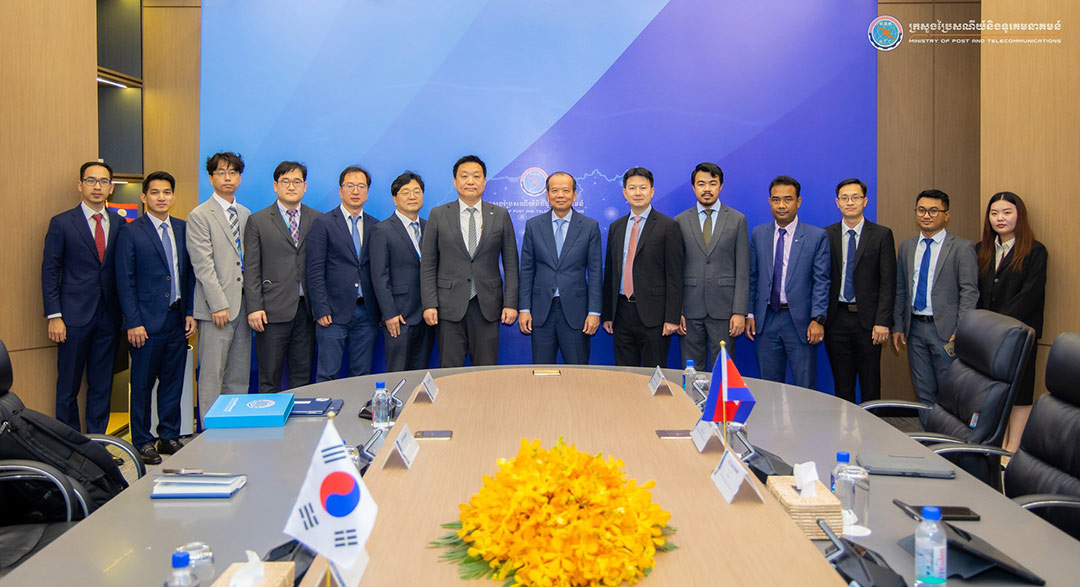
Bridging The Digital Skills Gap In Cambodia – What Is Planned For The Future?
Since taking up his role, H.E. Chea Vandeth said that he has been thinking about how to address the skills shortage and bridge the gap in digital skills so that Cambodia can be more competitive in the future.
“Our challenge is, first, the universities [in Cambodia] have their own digital programs, but they are not up to date… Second, our faculties are also mostly made up of teachers who have not received further training their whole lives to upgrade their skills. So most teachers in these faculty do not have industry experience, and only have theory,” he said.
“So how do we involve the industry? This is kind of a chicken and egg situation, because the industry does not develop well, and if the outstanding students go into the industry, then they do not grow themselves because the industry itself does not grow well. So now we are thinking about how to better link education with industry in this field.”
With several ideas on the go, the MPTC hopes to announce plans with partner universities and startup programs and to begin offering internships and access to incubators for students showing potential. The incubators include those based in the US, Singapore and in Europe.
Some of the areas he identified as having shortages in Cambodia include software development in emerging technologies, cybersecurity, and AI.
Nowadays everyone talks about software development, new emerging technology skill sets like in cybersecurity, and also Artificial Intelligence (AI), everyone talks about AI now… We don't know how AI will evolve, but it may be a positive opportunity… Data science and AI cloud computing are also very important, this is what has great demand in the future.

H.E. Chea Vandeth said that there will be more policies and laws in the pipeline – including improvements to the Telecommunications Laws in Cambodia. The ministry itself will keep evolving and undergoing administrative reform, including in its financial aspects and in its aim to meet growing demand from all sectors utilising technology.
The minister also mentioned that Cambodia currently has eight PhD students specialising in AI in France who will graduate in the coming years, and also spoke about projects in development that excite him such as a Khmer text to speech tool, digital tools to assist the deaf or hard of hearing, and a machine learning (ML)/AI tool that can respond to questions in the Khmer language.
Read More On Cambodia Post And Telecommunications Sector:
- Network Providers In Cambodia Send Alert On Theft And Vandalism Of Telecommunication Infrastructure And Equipment.
- GuarantCo Provides $70M Bond Guarantee To CamGSM For Telecom Infrastructure Expansion In Cambodia.
- Cambodia Post Launches New Website To Modernise Postal Services And Better Support SMEs.